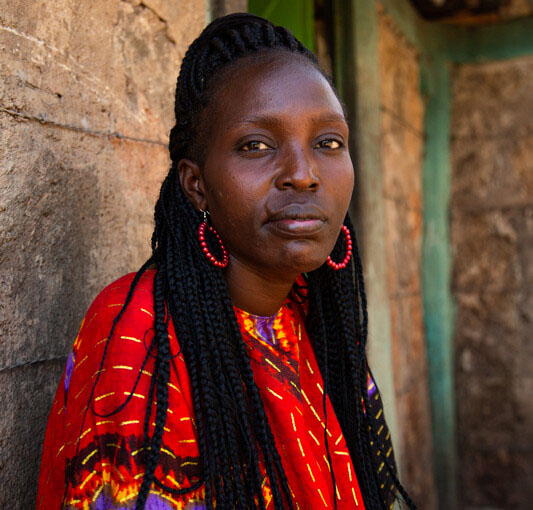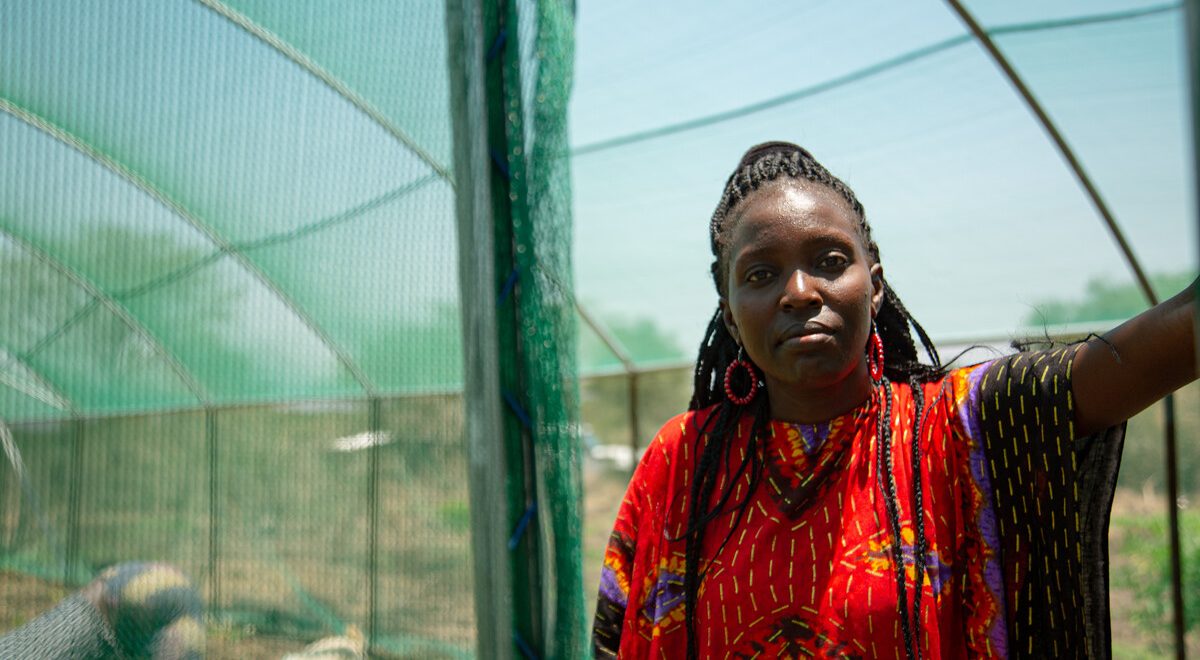In East Africa, historic drought has pushed communities in Kenya, Ethiopia, Somalia, and Somaliland to the brink of survival. Around 37 million people face severe hunger as the fifth rainy season fails. Despite the severity of the situation, famine has still not been officially declared for the region.
Rosemary, an agro-pastoralist and community leader living through climate change impacts in Isiolo, Kenya, is an advocate for women’s rights, runs and supports youth guidance and counseling in schools, and is also the vice coordinator of the Isiolo Youth Activist Network.
In Rosemary’s community, drought has caused water sources for people, livestock, and farming to dry up. The new challenges brought by the climate crisis are having a huge impact on girls. Many have had to drop out of school either to save on the costs of education or in order to support their families. Other girls have been married off early.

“Most students have dropped out of school… some have been forced into marriage because they lack any other means of survival.”
During times of scarcity, like drought, domestic violence rises due to stress and shortage of food. Climate change is exacerbating risks. Women and children are more likely to be mistreated and abandoned by men
Rosemary is a local leader, working with other leaders like her in the youth activist network, Isiolo Voice of Women Network. She also is part of farmers’ cooperatives, tree-planting schemes, and girl guidance and counseling.
ActionAid is working with partners in the region to support families. We’re calling for action from world leaders, demanding that polluters most responsible for the loss and damages caused by climate disasters are the ones that pay up for the costs.


